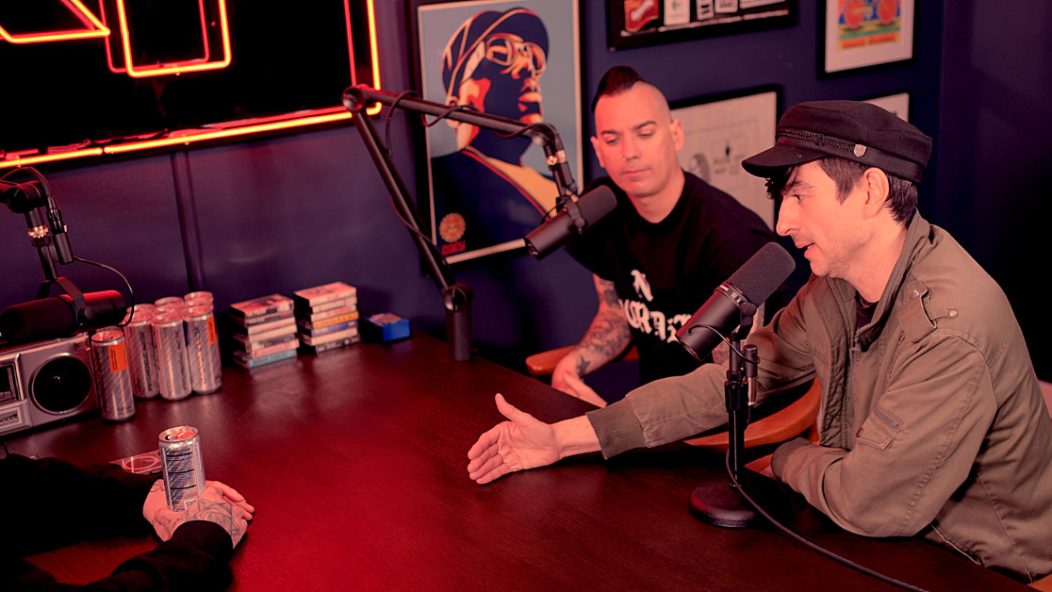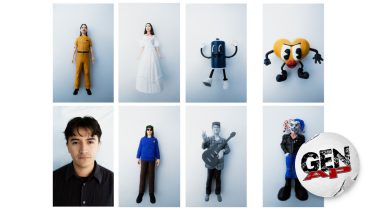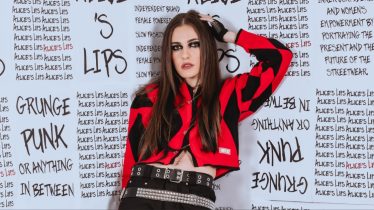
6 takeaways from Chris No. 2 and Justin Sane of Anti-Flag's Artist Friendly interview
This week, Chris No. 2 and Justin Sane from the iconic punk band Anti-Flag appeared on the Artist Friendly podcast. The lead guitarist/vocalist and bassist/vocalist spoke to host Joel Madden about the group’s long history of activism, involvement in the punk scene, touring, and so much more.
Read more: The oral history of Anti-Flag: “We were machete-ing our way through failure”
Before you dive into the episode, which is available now wherever you listen to podcasts, we rounded up a handful of key takeaways from the chat. Check them out below.
The band have realized their goal is to try to help “alleviate suffering” during their shows
Anti-Flag have a long history of activism and being an anti-fascist band. While they are still committed to writing about politics in their music, they’re aware that can only go so far and nowadays mostly revel in the fact that their concerts can be a safe space and source of solace for fans. Chris No. 2 shares on the podcast, “Now, I think that for us individually and collectively, the whole thing is about the alleviation of suffering. If it happens at the show, it’s about telling the trans folks that are there that they’re welcoming, the women that are under attack of Draconian abortion laws across America that they’re welcome.” They understand that an hour of punk music can have a huge effect on fans who may feel marginalized or without a sense of release elsewhere.
Talking to fans on tour helped Chris No. 2 process his grieving
In line with what the band said about their shows aiming to be a space to at least temporarily “alleviate suffering” among their fans, they explain that it goes both ways. While they understand the effect their music has on people, they also share on the pod how much that’s helped them — and how they even see “that reciprocation” as “the entity of punk rock and its greatest value.” Chris No. 2, for example, shares about how he struggled processing his sister’s death and didn’t necessarily have opportunity to with the band’s extensive touring and recording schedule. “Until I shared that story and then interacted with people at shows who shared their trauma with me, I wasn’t grieving my process at all,” he says. “That person who experienced something that was important to them in that moment, that person gave it right back to me — and that happens to us all the time.”
Anti-Flag made connections on Warped Tour that they’ve still held onto today
The bandmates and Madden spoke about their long history of knowing each other, with Chris No. 2 even mentioning he still remembers when he was a teenager managing the band’s email account and receiving a message from Good Charlotte. They eventually connected at Warped Tour — which was an odd but formative experience for Anti-Flag, as they were originally hesitant to participate but eventually met One Man Army and Flogging Molly, who they’re still touring with to this day. When they finally met Good Charlotte at the festival, though, around 2001 or 2002, Chris describes it as feeling like a fulfilling moment, as they got to witness how powerful the scene was and the ways in which it could crossover to the mainstream.
Lies They Tell Our Children is one of their most collaborative albums yet
Sane calls Anti-Flag’s latest full-length, Lies They Tell Our Children, “one of our most collaborative records.” Because the band had been apart from the pandemic, they were reignited when they got together. For the most part, the album sessions consisted of “throwing ideas at each other,” Sane says. “I’d come in with a riff and [Chris No. ] 2 would be like, ‘We should take that riff and go here with it.’ We enjoyed being around each other and being able to bounce ideas off each other,” he adds.
There are three chapters to Anti-Flag
Chris No. 2 sees the band’s history in three chapters. The first is their early days, where they were getting the band off the ground. The second takes place in the 2000s, where he says the band “hit [their] stride.” Finally, the third chapter begins when the band linked with Good Charlotte’s management company MDDN. “We’re better songwriters. We’re better communicators of these ideas than we’ve ever been, and I think we’re better performers because of it — we’re more in love with [the band] than we’ve ever been because we’re more free,” No. 2 enthuses.
Anti-Flag still have a future
Chris No. 2 admits that the future of Anti-Flag is both “very clear and very cloudy.” Considering that the punk band have been grinding since their formation in 1988, it’s amazing that they’re still putting out songs that feel just as urgent as their early work. No. 2 even says that it’s hard to take a break because “[they’ve] been so driven over the last two years.” However, Sane says that they need to find a balance soon. “If I’m honest, we’ve hit it so hard the last two years that I think we have to slow it down. I see burnout coming,” he says.










